Are you feeling overwhelmed by looming invoice deadlines? You're not aloneâmany businesses find themselves needing a bit more time to settle their accounts. In this article, we'll explore the importance of an invoice extension agreement and how it can benefit both parties involved. Join us as we dive deeper into crafting a compelling letter template to make your negotiations smoother!
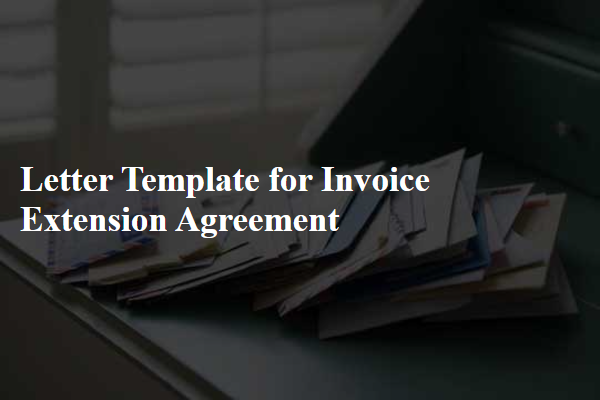
Recipient's Information
In an invoice extension agreement, the recipient's information plays a crucial role in identifying the parties involved. Essential details include the recipient's full legal name, which establishes the identity of the individual or entity responsible for the payment. Include the recipient's business name if applicable, providing clarity on the corporate entity engaged in the transaction. The recipient's address, typically consisting of street number, street name, city, state, and postal code, ensures accurate delivery of any further communications related to the invoice. Additionally, incorporating a phone number and email address allows for efficient contact and enables prompt responses to any queries arising during the extension agreement process. Lastly, including the recipient's tax identification number, if relevant, helps maintain compliance with tax regulations and ensures transparency in financial transactions.
Original Invoice Details
The original invoice details provide essential information for both parties in a transaction. The invoice number, such as INV123456, signifies the unique identification of the document for record-keeping. The date of issue, recorded as January 15, 2023, is vital for establishing payment timelines and terms. The total amount due, for instance, $5,000, represents the financial obligation of the buyer. Additionally, the service or product description, such as "consulting services for project X," specifies what was rendered. The payment due date, set for February 15, 2023, indicates the agreed timeframe for settling the invoice. Terms of service, like a 30-day payment window, outline expectations and consequences for late payments, ensuring clarity in the financial agreement.
Extension Request Justification
An extension request serves to formally outline the reasons for needing additional time regarding a financial agreement. Clear communication is essential to maintain professional relationships. The need for an extension may arise due to unforeseen circumstances, such as cash flow issues, sudden expenses, or delays in expected revenue. The request should specify the original deadline date, the desired new date, and articulate the rationale behind the request. Providing documentation, such as financial statements or related correspondence, can strengthen the justification. Clarity in the request promotes understanding and facilitates smoother negotiations.
New Payment Terms
An invoice extension agreement can detail adjusted payment terms, typically necessitated by circumstances such as economic shifts, customer requests, or business negotiations. Essential components include the invoice number, original due date, revised payment schedule, and any applicable interest rates on overdue amounts. These agreements are often formalized through written notifications, which may be issued from a business's finance department or a designated account manager. Specific clauses can reflect the impact of extended payment periods on service delivery, potential late fees, and clauses for termination of services if terms are not met. Ensuring clarity on these terms is crucial for maintaining healthy supplier-client relationships.
Contact Information
An invoice extension agreement is a formal document designed to provide additional time for payment on a previously issued invoice. This agreement includes essential contact information that may feature the names of both parties (the service provider and the client), email addresses, phone numbers, and billing addresses to ensure clear communication. The invoice details, including the invoice number, date of issuance, and the original payment deadline, are also included. An extended due date should be clearly specified to eliminate any confusion regarding payment expectations. Additionally, including specifics about any agreed-upon changes in payment terms or potential late fees reinforces the importance of meeting the new deadline within the context of ongoing financial obligations.
Letter Template For Invoice Extension Agreement Samples
Letter template of Invoice Extension Confirmation for Account Management
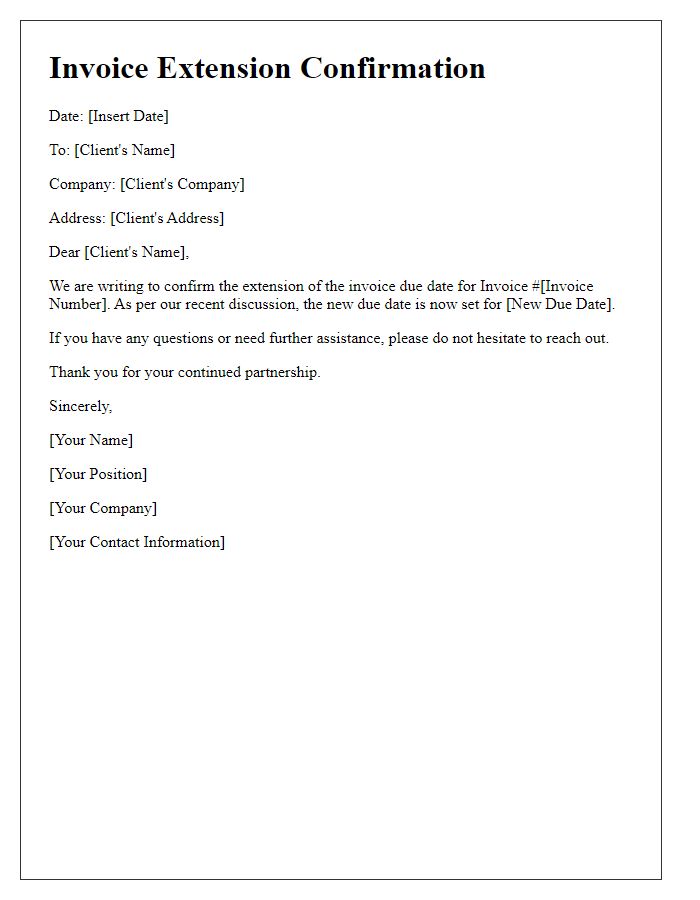
Letter template of Invoice Extension Agreement for Special Circumstances
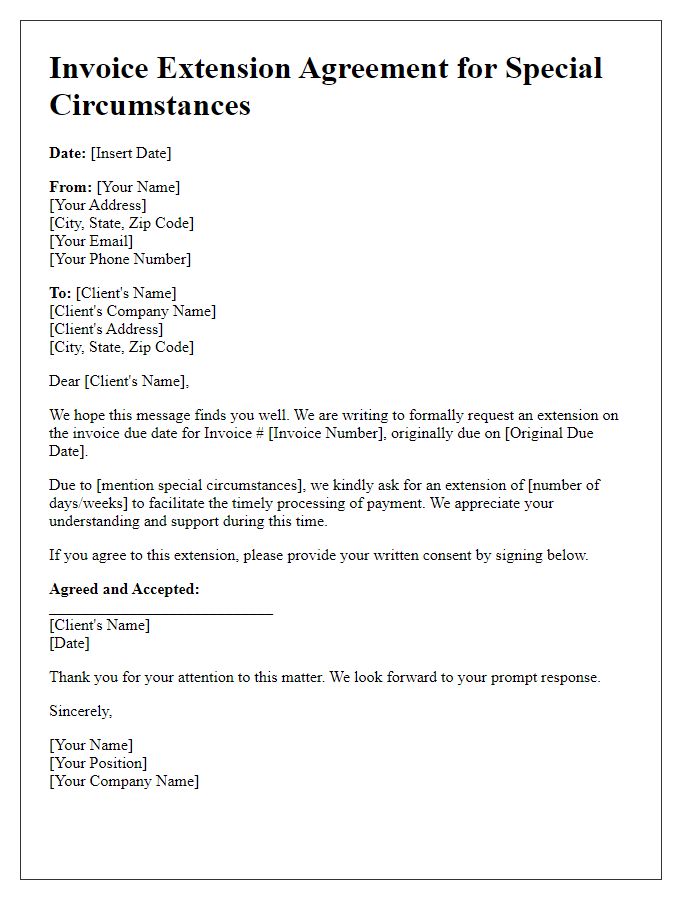
Letter template of Request for Invoice Extension Due to Financial Hardship
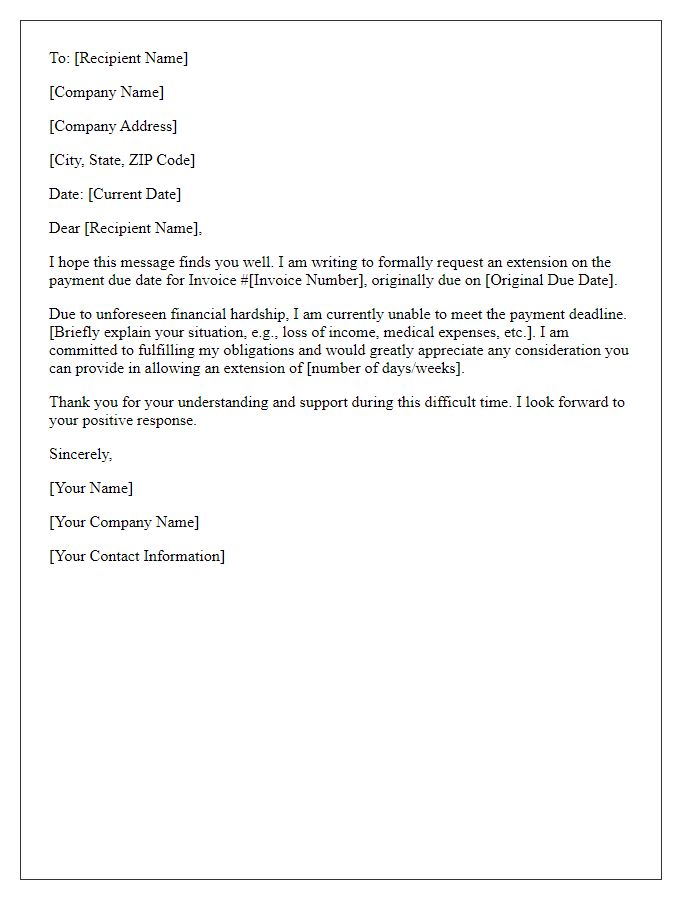

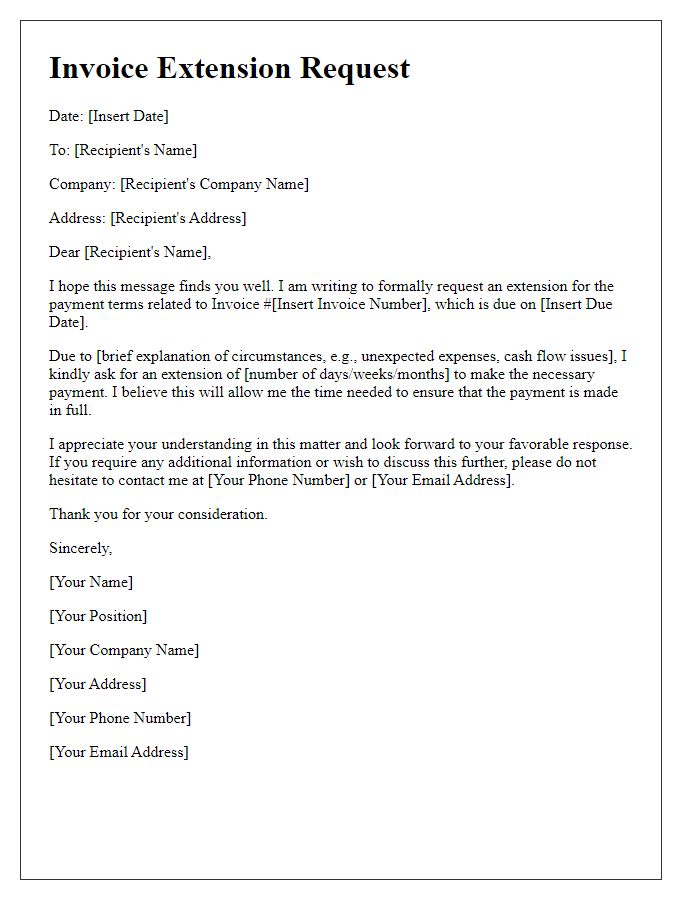
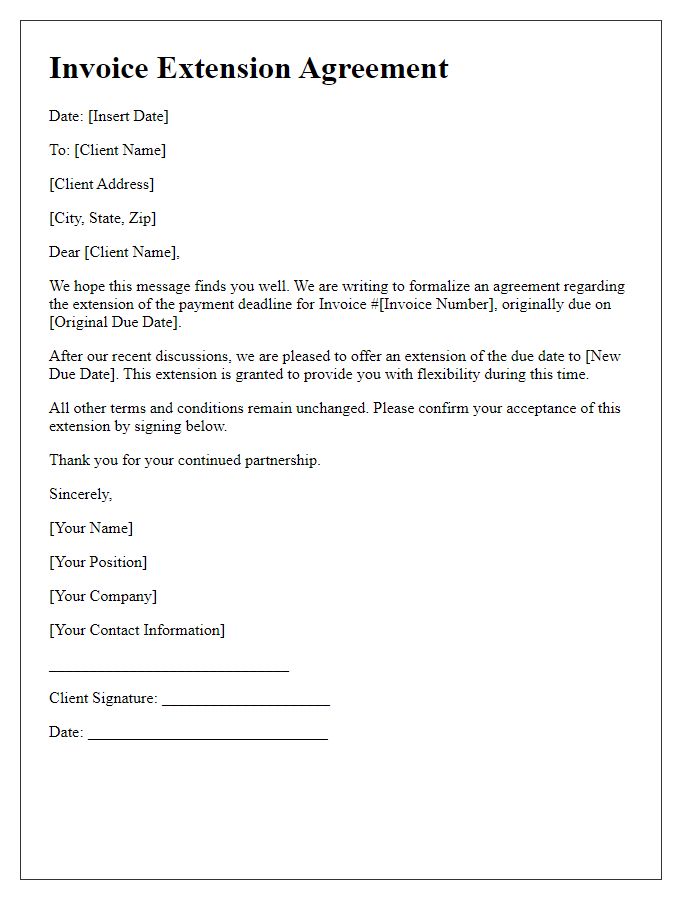
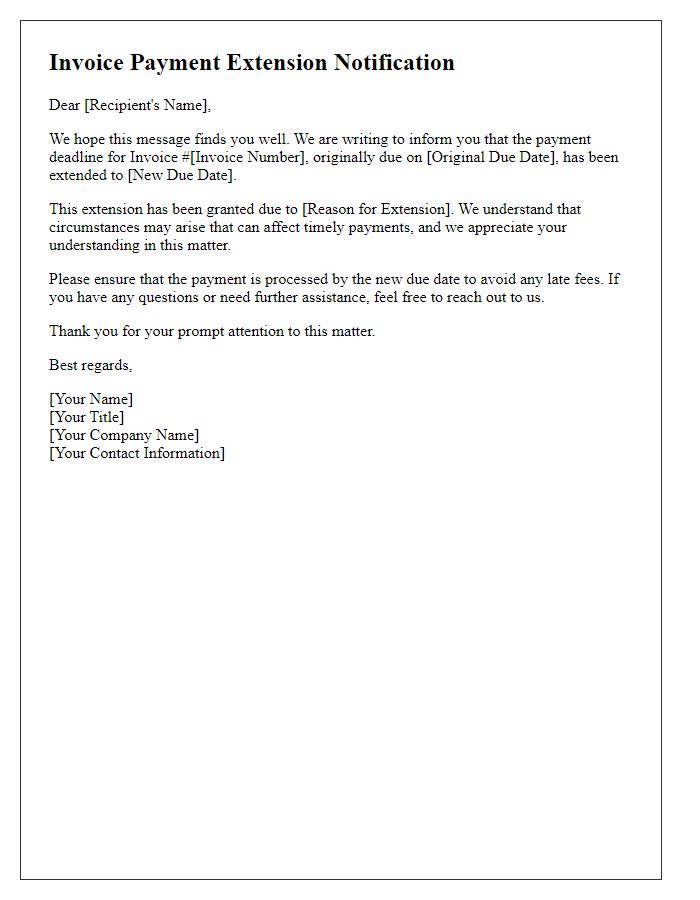
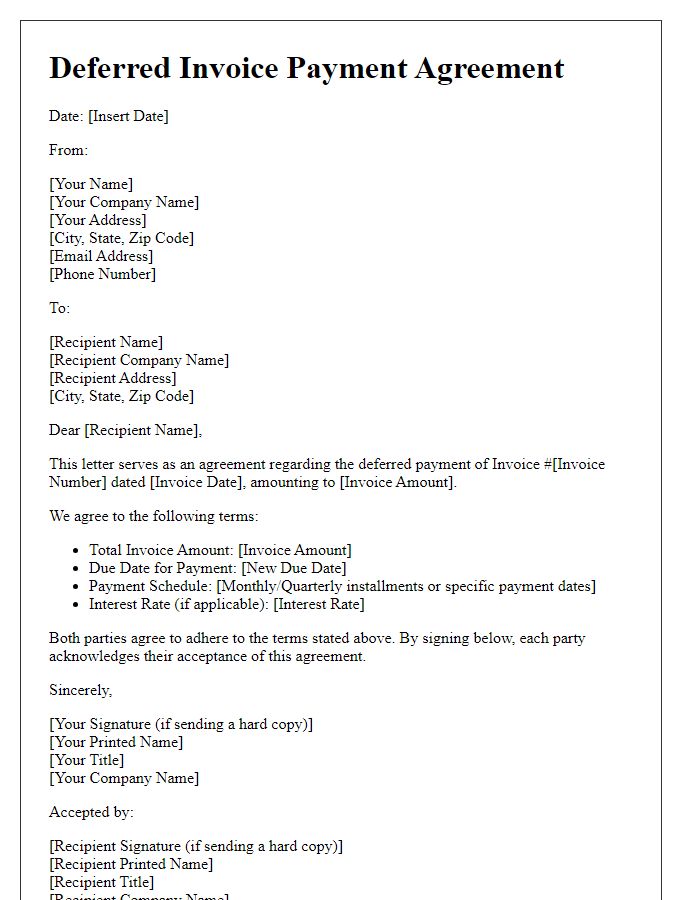
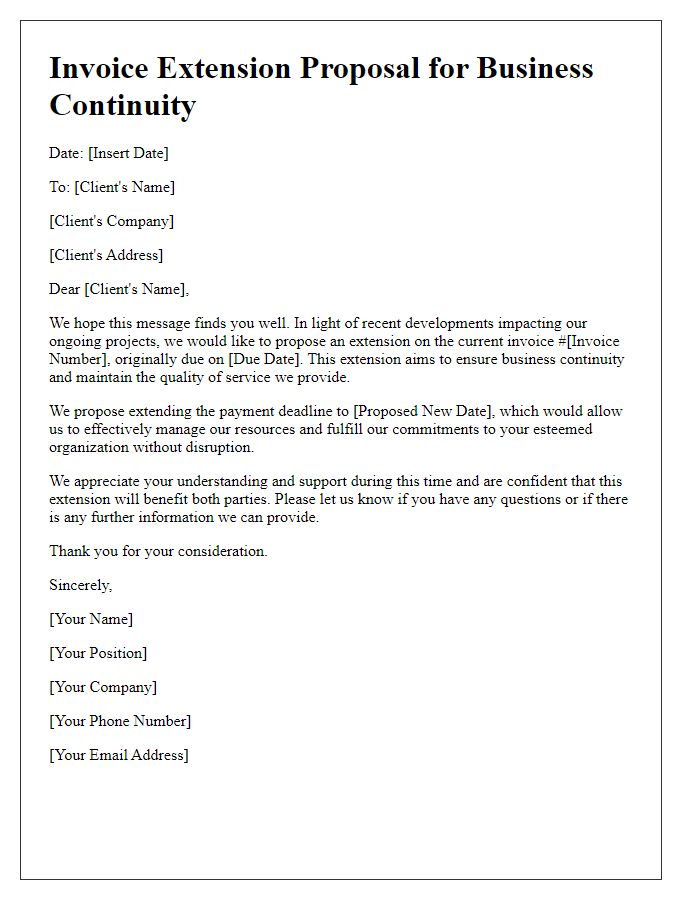
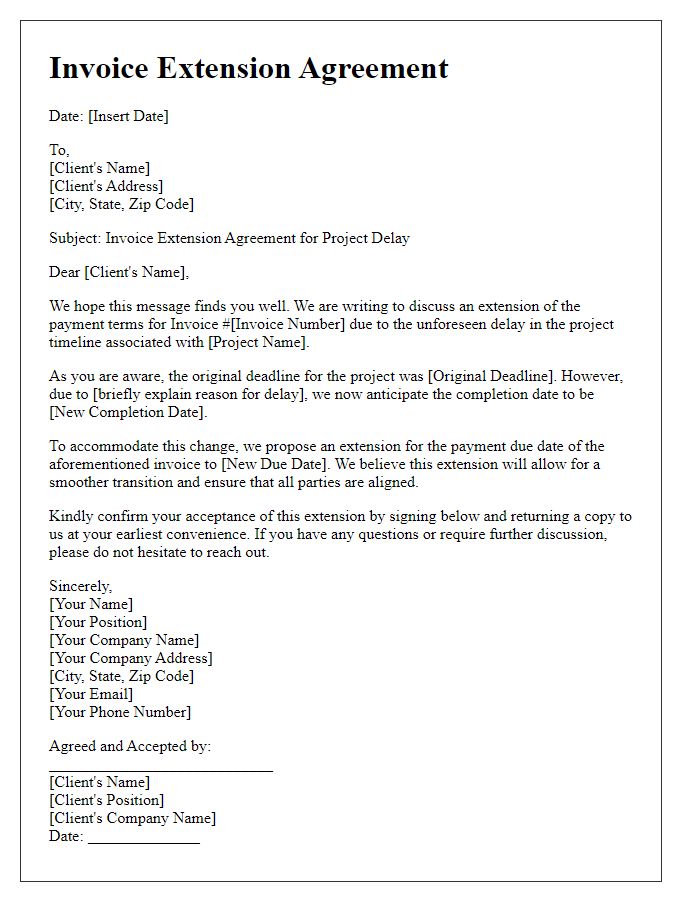
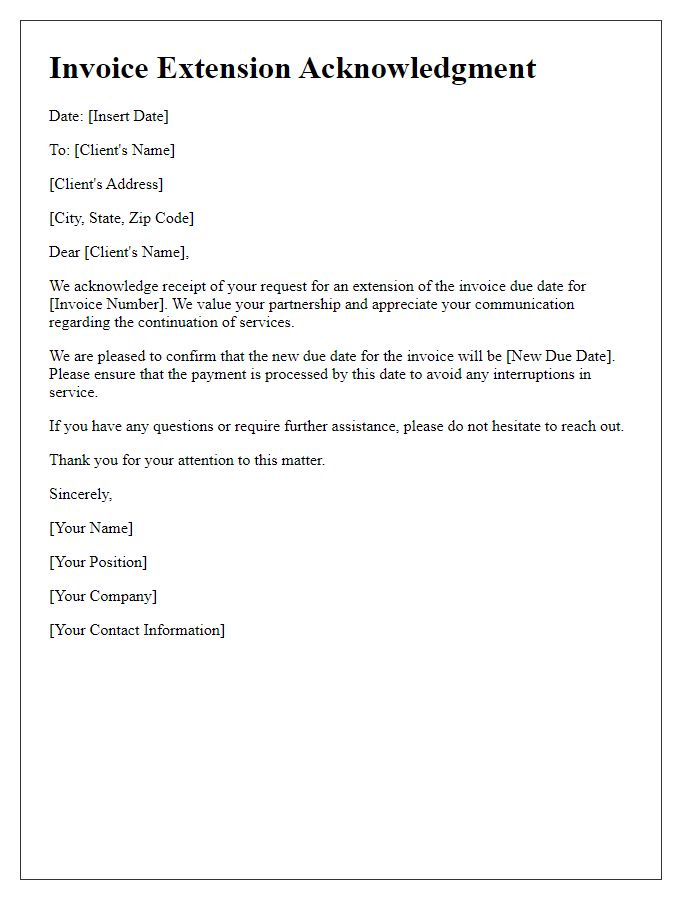

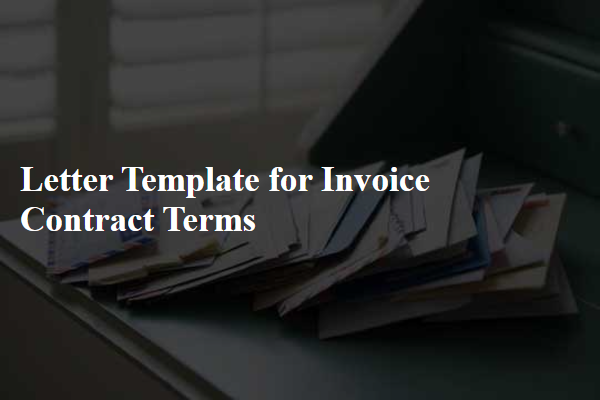
Comments